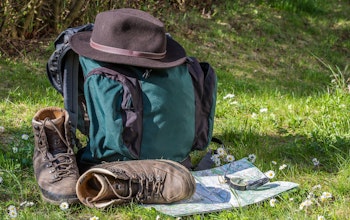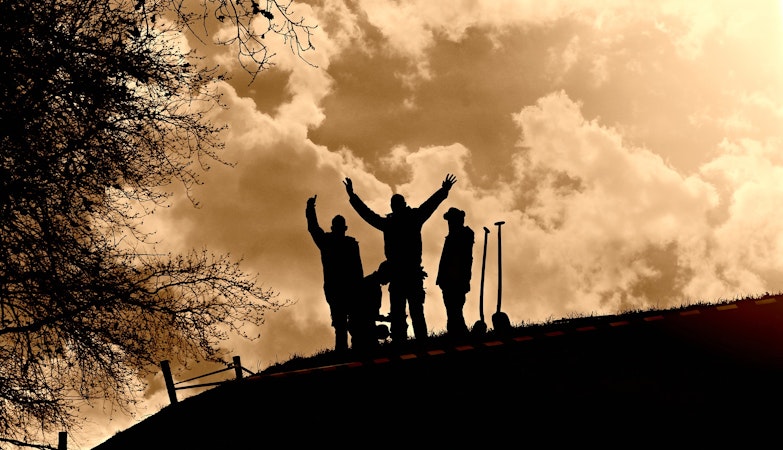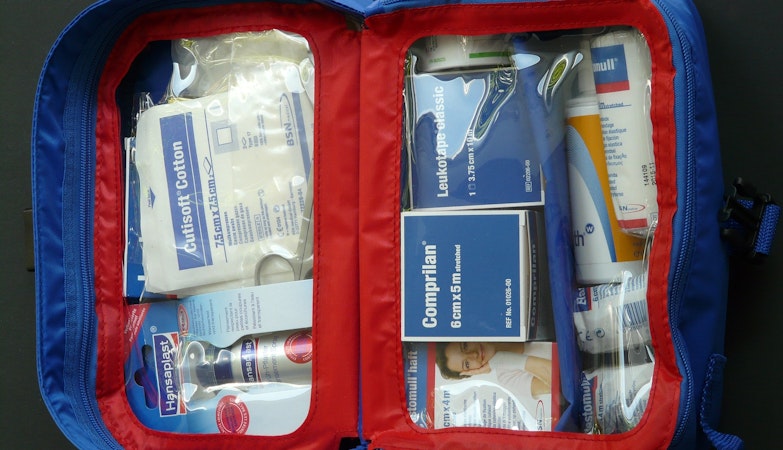This brief publication is intended for those responsible and concerned citizens who have recognized the hazards of our times and have determined to improve their own readiness for emergency situations
Introduction
It is amazing how many American’s will spend thousands of dollars on video games, designer clothing and CD players but still not buy a fire extinguisher, a crank powered radio or a good first aid kit. We may spend hundreds of hours each year playing games and watching TV but put off learning basic skills of first aid, self-protection or basic survival. Even simple things like storing extra water or making a home fire escape plan are often put off until too late. Even when we see horrific events like the 9/11 attacks, storms and earthquakes we quickly sink back into apathy. Unfortunately bad things do happen. And they can happen to anyone, anywhere at anytime. There just is no such thing as a safe place or a safe time, but you can be a safe person and have a safe family. While preparedness cannot guarantee your safety in all events, it can greatly improve your chances of survival and minimize the impact of any disaster. It is also the duty of responsible citizens in a free society to be prepared to help themselves, their neighbors and their communities in times of crisis. The following checklists are intended to establish the minimum level of civilian preparedness for most emergencies. Your location, lifestyle, profession, travel routs, and concerns may indicate additional needs. Ask yourself: What can happen to my family and me? What could I do? What do I need to do now to improve my situation?
Basic Emergency Planning Checklist
Use this list to establish an emergency plan for you and your family.
1. Do you have clear and simple plans for each of the most probable emergencies that could happen to your family such as:
| ☐ Home fire | ☐ Civil Disorder |
| ☐ Home invasion | ☐ Street crime attack |
| ☐ Power outages | ☐ Medical emergency |
| ☐ Earthquake | ☐ Biological / Chemical Incident |
| ☐ Flood | ☐ Storm |
| ☐ Other _______________ | ☐ Other _________________ |
☐ Are all family members fully aware of these plans?
☐ Do you have plans, routes and basic items for emergencies that could happen while you and family members are in your car, at work, at school, on the street, etc.?
☐ Have you established escape routs and assembly points for emergencies when family members may not be home or may have to evacuate the home (fire, intruder) via different exits?
☐ Do you have all the items and equipment (e.g. water, food, shelter, first aid, medications, sanitation, defense, etc.) to sustain your family for 30 days without support?
☐ Will these supplies be safe and available in all anticipated (floods, fire, etc.) emergencies?
☐ Would you be able to take supplies with you in your vehicle or on foot if you need to evacuate?
☐ Have you reviewed emergency plans with your family for home fire evacuations, home intruder situations, etc. in the past 6 months?
☐ Have you practiced your plans to be sure they work?
☐ Have you considered the safety and survival of your pets in your planning?
Things You Should Know
☐ Know the kinds of emergencies that are most likely to happen to you based on past and current weather events, crime patterns, nearby industrial and government facilities, recent trends, etc
☐ Know what your communities’ emergency signal and plans are.
☐ Know what the emergency plans, signals and routs at your place of employment, school, etc.
☐ Know a number of safe evacuation routes.
☐ Know basic first aid, CPR and self-protection techniques.
Emergency Preparedness Supplies Checklist
Here are the most basic items you need to have to survive emergency situations.
☐ Water stored in clean plastic bottles. About 5-gallons per person. Add a few drops of bleach per gallon to assure safety or replace every three months.
☐ A chemical (camp) toilet or plastic bags, 5-gallon pail and bleach.
☐ Oil lanterns and/or candles, plus good LED flashlights and batteries.
☐ A battery or crank powered FM/AM/Weather Radio.
☐ At least two large ABC fire extinguishers.
☐ Heavy plastic sheeting, duck tape and rope.
☐ A fully-stocked first-aid kit including bandages, compresses, tape, antibiotic ointments, burn cream, and a first aid manual.
☐ Extra stocks of your needed over-the-counter and prescription medications.
☐ Self-protection such as a handgun, shotgun or at least large size pepper spray.
☐ Extra blankets or sleeping bags for cold climate areas.
☐ Propane camp stove and heaters with extra fuel.
☐ Extra canned goods and/or dried foods (beans, rice, past, dried fruits) to feed the family for up to two weeks beyond what is normally in the home.
Options and Alternatives
☐ You may want to keep all your emergency supplies in one or two tote-bins. This keeps them safe and dry. If you have to evacuate you can just through them in your vehicle and go.
☐ Some people prefer to make up “Emergency Back-Packs” that are self-sufficient for each family member. These can be kept at home carried in the vehicle or carried if you have to walk to safety.
☐ Add things like life jackets, gasmasks, rescue tools, signal flairs, rope ladders, etc. based on the situations you anticipate.
☐ You may want to consider storing some or all of your supplies away from the home (shed, buried, etc.) if your concerns are fire, flood, earth quack, etc. where they might be destroyed or unavailable when you need them.
☐ If you elect to have a firearm for self and family protection PLEASE take a safety course, keep them out of the reach of children and learn the legal aspects and the skills of self-defense shooting.
Preparing For Emergencies
When there are signs of an impending there are some actions you can take to reduce the hazards.
☐ Check your emergency supplies and have them ready to use or move to safety.
☐ Be sure your vehicle is fully fueled and in good condition.
☐ Fill you bathtub and other containers with as much water as you can. Don’t forget there is clean water in your hot water heater and your toilet tank.
☐ Be ready to turn off gas and electrical supplies to avoid fires.
☐ Get the family together if possible before the emergency and be sure everyone knows what to do if you are separated. For example: “we will all meet at Uncle John’s farm within two days”.
☐ Gather any high value personal items that you want to take with you.
☐ Listen to emergency information on the radio and obey instructions.
We hope this information will help you and your loved-ones survive any future emergency. Most of these preparations take only a little time and the costs are modest compared to the potential savings of life and property. Even if you never need to use your plans and equipment you will have the piece of mind that comes from knowing you did the responsible thing. There is much, much more to know about emergency preparedness, survival and self-reliance.









